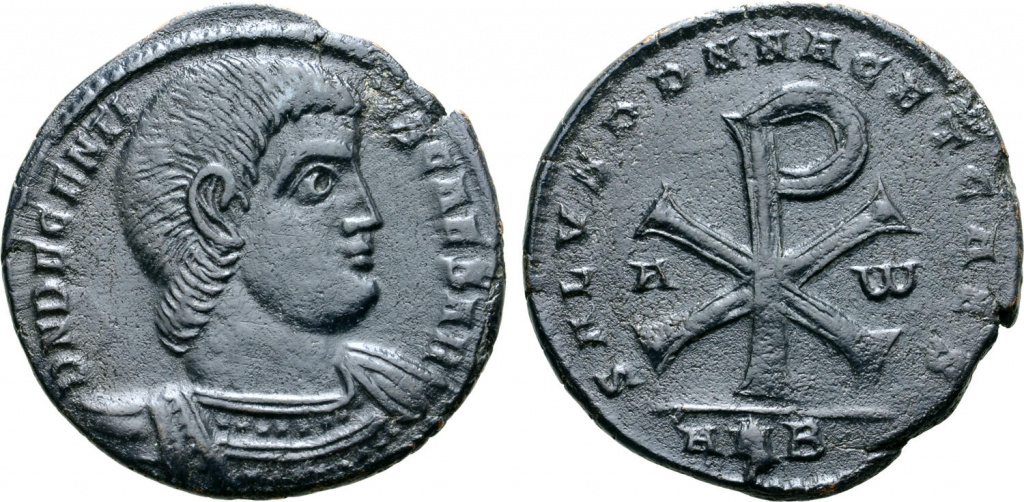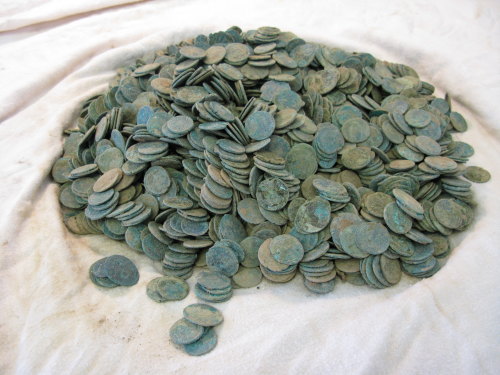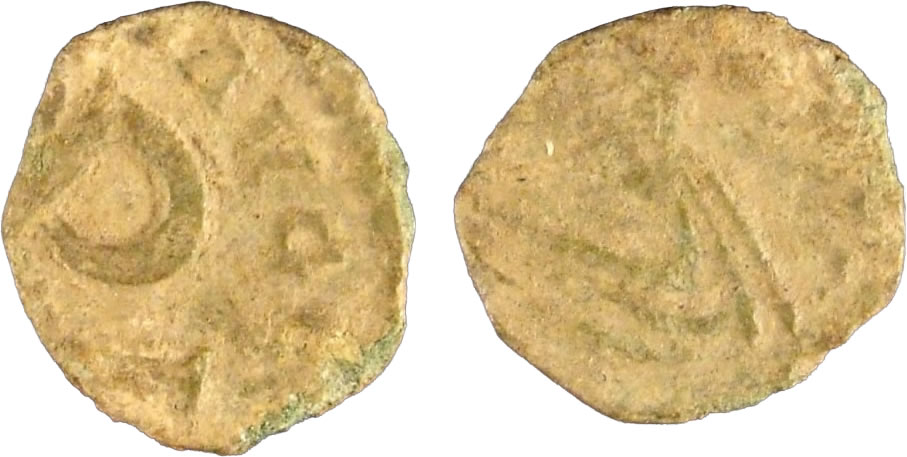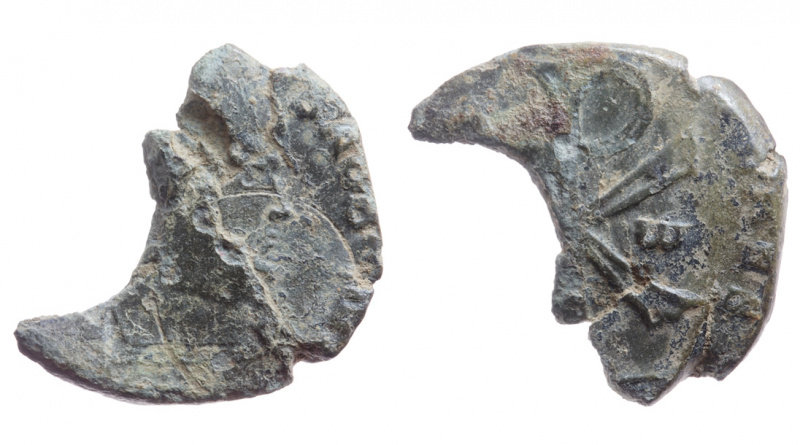Nummus of Decentius
A nummus of Decentius that has been deliberately cut is a consequence of the outcome of Roman civil war of 350-353 and possibly the activity of Paulus “Catena”) or Paul “the chain”. As the PAS record suggests, it is likely that it has been cut to make smaller coins after Constantius II banned the coins of the usurper emperor, Decentius. It has been designated a Find of Note of County Importance
Chi-Rho nummus of Decentius
As shown on this other example, the obverse would be the bust of Decentius with the legend D N DECENTIVS CAESAR. The reverse legend is a SALVS DD NN AVG ET CAES depicting a large Chi-Rho.

Although the Chi-Rho was originally closely associated with Christianity, it may not reflect attitudes in the 4th century.
Decentius and Magnentius
In the summer of 350 Decentius rose from obscurity to be appointed caesar of the Western Roman Empire by his brother Magnentius. In January that year, Magnentius had seized power from the deeply unpopular Constans and had him murdered. This led to the Roman civil war of 350-353 between the forces loyal to Magnentius and those of Constantius II, brother of the murdered Constans.
In 351 the Battle of Mursa Major left at least some 50,000 Roman soldiers dead which severely weakened the Roman army. With so many dead it was something of a Pyrrhic victory for Constantius . In 353, after defeat at the Battle of Mons Seleucus, Magnentius retreated to Luddunum (Lyon) and, when his house became surrounded, he fell on his own sword. On hearing the news of his brother’s suicide, Decentius hanged himself.
Constantius II
Constantius moved quickly to repeal the political and religious reforms instituted by Magnentius and Decentius. In a decree, probably made in 354, the coins of Magnentius and Decentius were outlawed.

There have been quite a number of hoards found which terminate with Magnentius/Decentius or shortly afterwards such as this find of 2,896 coins from 2007 (HESH-881F86) . This might be because the coins had become useless or they were an unwanted association with a discredited regime.
Paulus “Catena”
One of the reasons why you might want to disassociate yourself from Magnentius after his death was Paulus “Catena” or Paul “the Chain”. His cruelty was infamous throughout the Roman world and he earned his nickname because he would chain people up and drag them through the streets. Constantius sent him to Britain to hunt down supporters of the defeated Magnentius and he conducted his remit with vigour. There was a notable decline in the economic activity in some places in the south of Britain at the time which might have been due to the work of Paulus “Catena”.
Cutting of smaller coins
A number of examples have been found by detectorists of both the remains of larger coins of Magnentius and Decentius that have been cut and the resulting smaller coins. The example below (LIN-3FC248) is of a smaller coin cut from a Rho Chi coin of Magnentius

This activity may well have taken place when the heat had died down later in the 4th century or possibly even in the 5th century.

